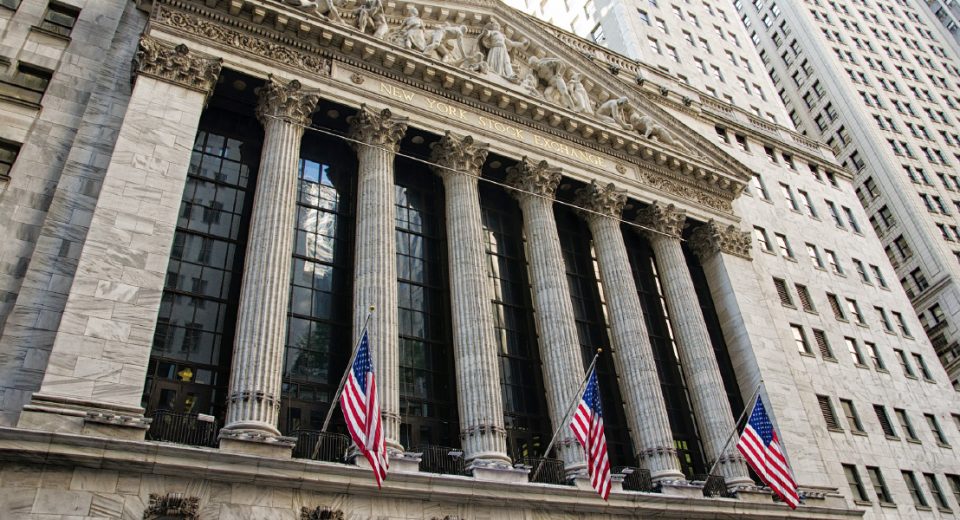Can Blockchain Disrupt the FX Industry?

In January 2019, London-based bank HSBC settled $250 billion worth of forex trading transactions on the FX Everywhere blockchain trading platform, developed by FX Trades, a blockchain firm, in collaboration with Goldman Sachs and Morgan Stanley. Later, in February 2019, the bank reported a major decline in transactions costs, due to the distributed ledger technology.
The HSBC platform is a one-of-a-kind example of blockchain being used by a bank for forex transactions. It certainly shows that blockchain does have application potential for FX.
The distributed ledger technology continues to disrupt industries around the world. By 2021, the blockchain industry is poised to grow to a staggering $2.3 billion worldwide. Apart from finance, other markets like healthcare, supply-chain, digital rights and education are waking up to its advantages in their value chain. Can the FX industry benefit from it too? Let’s find out.
Increased Transparency
The main elements of the forex industry are banks, corporations, traders, investment funds, brokerages and governments. One of the many ways in which blockchain can benefit the industry is by increasing transparency between these players. The distributed ledger is a secure, reliable and immutable way of securing records, be it currency quotes, transactions, laws and regulations or anything else. The FX industry can have its own decentralised record system, which enhances the availability of information.
Contrary to popular belief, the currency markets are not decentralised. Prices are decided and maintained by Central Banks, like the US Federal Reserve or the Bank of England. Small corporations and retail traders are kept out of the loop of this system, which means that they do not have control over how currency prices are decided and maintained. With blockchain, big banks could lose their ability to dictate currency prices and cause significant market moves through their trades. All participants will have equal, convenient and real-time access to price information.
Increased Transaction Speed
We have seen how HSBC has been able to save up on significant transaction costs with blockchain. For years, banks and other financial institutions have been trying to cut down costs related to foreign exchange transactions in a transparent way, the benefits of which, they can pass on to their customers. The World Bank reports that reduction in the cost of cross-border payments alone can save up to $16 billion annually. One of the prominent projects in this area is the Ripple cross-border payment network.
Ripple or XRP is a real-time gross-settlement system remittance network and currency exchange, which facilitates fast payment settlements at minimal costs, to its network of banks and money service businesses. Moreover, the blockchain-based platform allows payments in any currency, including Bitcoin. BLT Group’s Interbit platform, developed in collaboration with Visa, is another example.
Another way in which this system can be put to use is by transitioning the industry into a peer-to-peer lending model. Not just small traders and startups, but big companies or banks can exchange money via the peer-to-peer model, rather than going to the Central Banks for currency reserves. This will be a huge shift from the way the industry operates today, as well as the way the world economy is regulated. The concept of financial intermediaries could be erased.
Increased Security
Blockchain can provide increased security to millions of transaction records and vital personal and banking details. The forex market is known for its high liquidity, which means small amounts of money can be moved, without affecting currency prices. Human error and cybercrime can easily lead to manipulation of trading accounts. Vast sums of money can be siphoned off, leaving legitimate traders to bear the brunt of huge losses.
Blockchain data is cryptographically encoded, through a system known as “hashing.” Information is stored in blocks that have unique hash numbers. The next block in the chain is linked to the previous block through these hash links. This makes the system very difficult to manipulate. Sensitive data is, therefore, harder to hack.
Why are Financial Institutions Still Wary?
Despite advancements in the blockchain sector, banks are hesitant to implement the technology in the forex sector. A major example is the CLS project.
Continuous Linked Settlement (CLS), a UK-based financial system founded in 2002, aims at reducing risk in forex settlement services through the use of blockchain. Its members include 60 of the largest financial institutions in the world, including Goldman Sachs, Barclays and JP Morgan Chase. By March 2017, CLS was handling 50% of the global forex transactions. The CLS joint projects with IBM and R3, a blockchain consortium of 200 financial companies worldwide, have recently been under the radar.
Many of the enlisted financial companies on this network are hesitant to implement blockchain in their systems, since its use in the industry is still in the nascent stages. The technology remains vastly untested. Over half the companies that had originally signed up for CLSNet have backed out. Many of these companies are concerned about giving their data to a blockchain-based system.
Other participants are concerned about a visible-to-all decentralised network of forex transactions, which they think is risky. In a paper released by the ECB, on analysing the effect of DLT systems on securities trading, the bank expressed concerns regarding how sophisticated market players could take advantage of the available information, such as liquidity needs, and work against their unsophisticated counterparts.
The critical issues of governance, regulations, legal and operational frameworks are not yet well established. How does forex trading on a system like this work, when different countries have varied stances on blockchain-powered solutions? Certain post-trade functions cannot be implemented on blockchain either.
It remains to be seen whether blockchain will evolve to find application across the forex industry or just a small niche section of it. The changes will be gradual and might take a couple of decades to proliferate. But, benefits of the technology can be manifold for the industry.
Reference Links
- https://coinrevolution.com/hsbc-conducts-blockchain-based-forex-trade-worth-250bn-in-2018/
- https://www.reuters.com/article/us-hsbc-blockchain/hsbc-forex-trading-costs-cut-sharply-by-blockchain-executive-idUSKCN1Q31MW
- https://www.statista.com/statistics/647231/worldwide-blockchain-technology-market-size/
- https://www.blockchain-council.org/blockchain/can-blockchain-cut-foreign-exchange-transaction-time/
- https://www.innovify.com/blogs/blockchain-changing-fx
- https://www.reuters.com/article/global-forex-volumes/daily-fx-trade-more-like-3-trillion-than-5-cls-idUSL5N1GK1F5
- https://cointelegraph.com/news/is-the-forex-market-ready-to-go-blockchain-some-banks-dont-think-so




